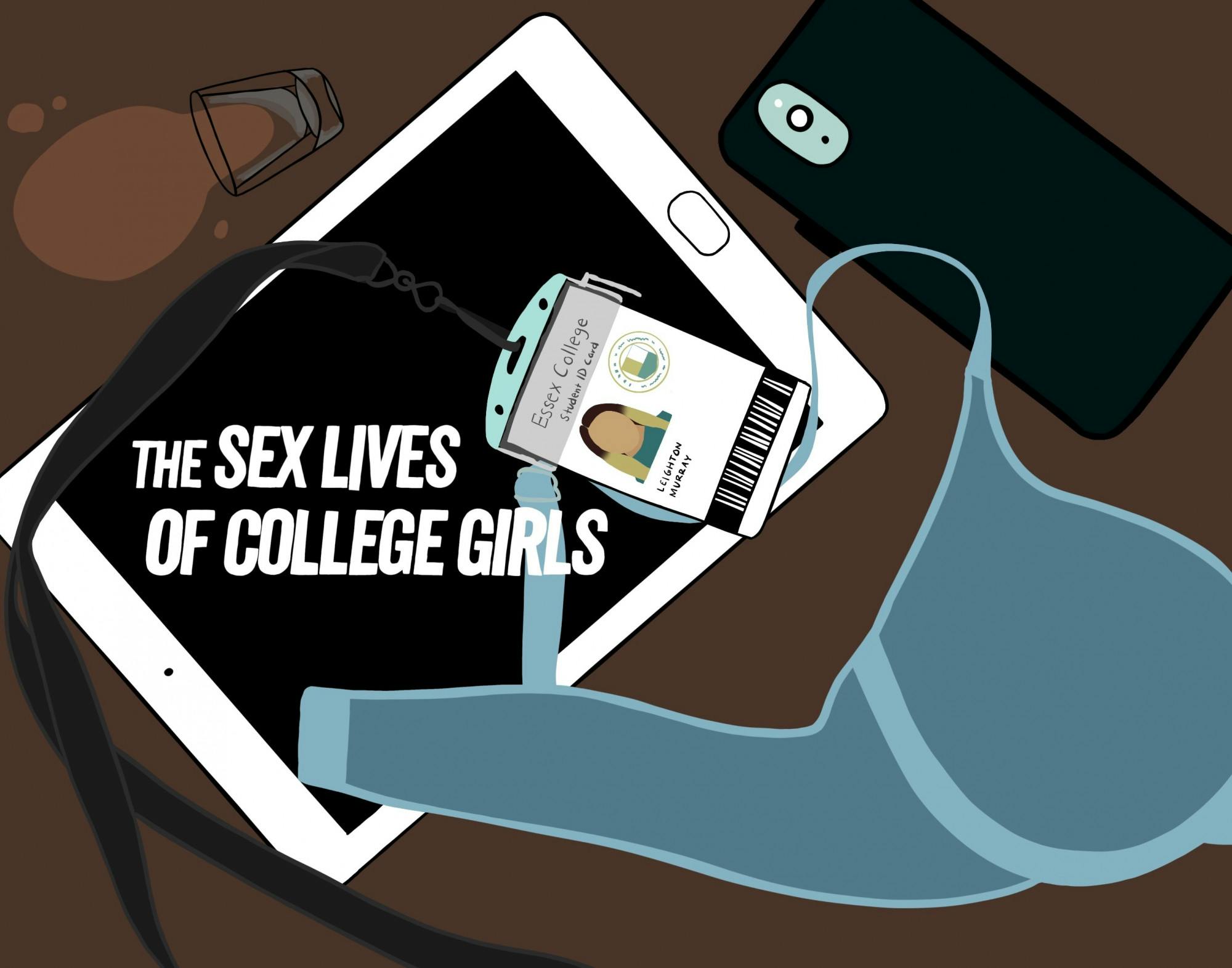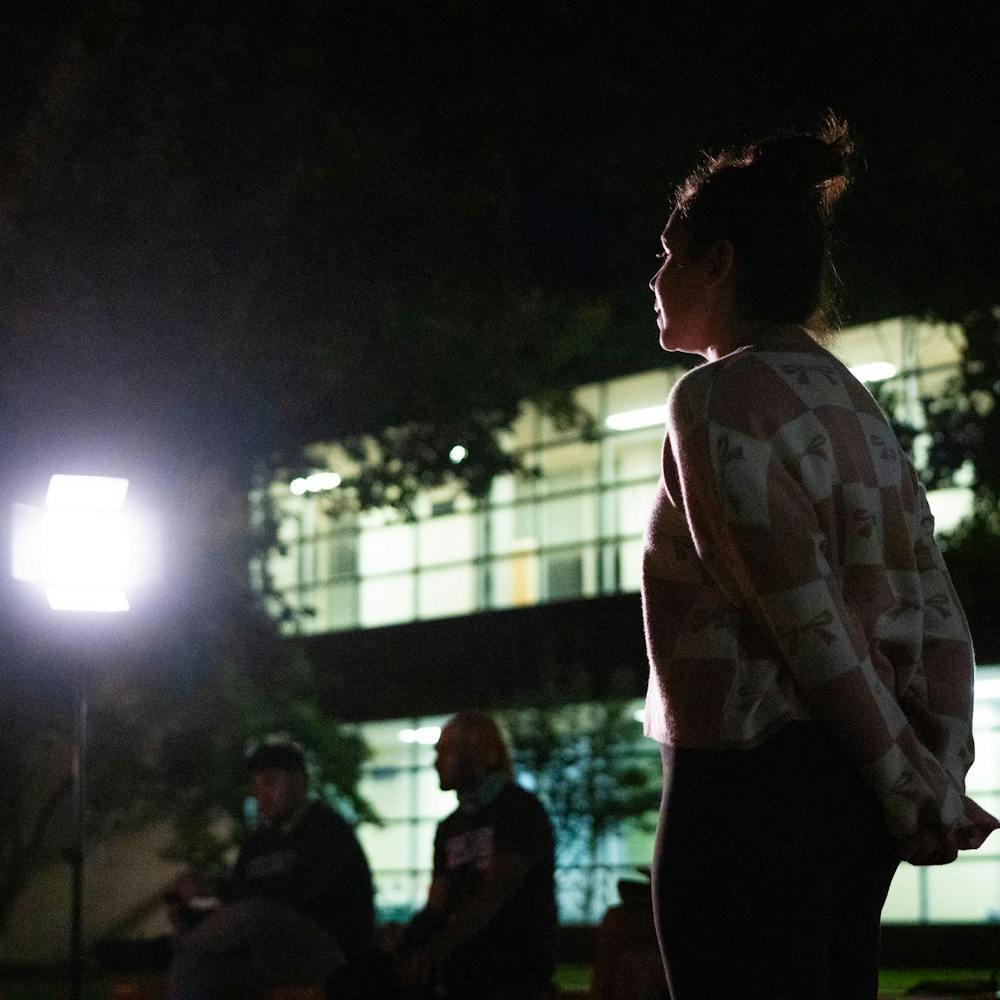Soft lighting. A beautiful four-poster bed. Attractive people splayed on covers like models in a perfume commercial. Eyes practically shaped like hearts because they're so in love and want to seal the sacred deal with the forbidden love language no one dares to speak about in public.
If this sounded like “Twilight” to you, it's because it practically is. This is the way sex is portrayed in media and, whether you like it or not, this is not reality.
While TV shows like “Sex Life of College Girls” have come out on HBO Max to try and relate to these younger relationships, many students still don’t feel represented in media.
“They could do a better job at highlighting more of the emotional aspects of relationships rather than the physical ones, or at least not getting the two confused,” media and information junior Madeline Allen said.
Being in a long-term, sexually-active relationship, Allen said she felt conflicted on how the media portrayed what her sex life should be: whether it was the endgame for the couple, or something that needs to be kept a secret.
“It’s kind of like Pandora’s box: you want to know what it’s about,” Allen said. “You want to touch it. You want to open it. Then when you open it, you’re like ‘Wait, we have to keep it hush.’”
Assistant professor William Chopik, who researches social relationships and their influences, said these messages provide ambiguity of what a relationship should be.
“People often say that media might be toxic for people and then self-worth and relationships, but I think it's also the case that there is a ton of really mixed messages,” Chopik said.
Allen said some of these messages include unhealthy standards in relationships, such as perceiving sex as something to earn or coerce your partner into. She also said there are underlying concepts of rewarding or even chasing behaviors of leading sexual partners on or teasing them, further making sex seem like a prize.
“In terms of saying that sex is something that you have to win someone over for, it shouldn’t be like that,” Allen said.
Allen said she doesn't like when sex is used as a visual lustrous and sexual love bomb.
“Sex isn’t always this super powerful, crazy turning point,” Allen said. “It doesn’t have to mean anything pivotal. A lot of the time … sex scenes are pivotal moments for character’s relationships and it's a symbol of that, and I don’t think that always a thing in real-life, ongoing relationships.”
While Allen doesn't believe sex can be completely stripped from scripts because it sells in the industry, she thinks it could be used better as a gateway to discuss all the different factors that go into having sex with a partner.
Chopik said these portrayals can dig their way into real-life dissatisfaction in people's love lives, leading to desires that cannot be fulfilled due to the unrealistic nature of media. He said rather than people usually focusing on the positive fact that their own relationships don't have problems such as cheating, they focus on the possibility of extramarital affairs when exposed to it.
Chopik said more diversity could solve this issue, showing a broader view of what life could be like or a more diverse group of people to showcase. For example, shows can feature actors who may not be conventionally attractive.
While Chopik did criticize the unrealistic shows — such as “Emily in Paris,” which follows an extreme lifestyle of being gorgeous and wildly successful in romance throughout the city of love — he understands that relationship shows are popular. Instead, he suggests watching “Love on the Spectrum,” a dating show with a surprisingly refreshing new group of people to follow on their path to “the one”: people on the autism spectrum.
English and women and gender studies sophomore Kattiah Richardson is also on the hunt for more refreshing media to look for in representing herself in relationships.
“I would love to see more stable and long-term couples like myself,” Richardson said.
Not being able to relate to shows with hookup culture, Richardson instead finds herself looking to Lily and Marshall in “How I Met Your Mother,” which she said encapsulates a healthy relationship on television.
However, Richardson has found toxic relationships in media as well. She highlighted the Harry Styles fanfiction-turned-movie-series “After” which she said glorifies this toxicity.
Support student media!
Please consider donating to The State News and help fund the future of journalism.
“I do think that there needs to be better portrayal in a way that it's not glorifying, romanticizing hookup culture completely, but also not being slut-shaming and gross,” Richardson said.
While sex used to be taboo in entertainment, making characters that were not married sleep in separate beds in the 1950s, in the age of technology and social media, it is unavoidable. Sex in entertainment no longer has a shock value in most people's lives.
Allen said that while sex is normalized, “love” and “sex” are not interchangeable terms and need to be demonstrated in two separate ways, calling on media to be better.
“The more they showcase it, as much of a powerful way as they do, they are kind of downplaying all of the other aspects to relationships and definitely all of the other parts that kind of contribute to building up to what is having sex for two people,” Allen said.
However, Chopik said what actually matters in a relationship — from research labs, contradicting what the media says — is received partner responsiveness.
“Media might portray relationships in this very casual way where there’s sort of a low investment in relationships, but in reality, the things that matter most are disclosure … listening to them, being responsive when they tell you something and helping them,” Chopik said.
Discussion
Share and discuss “Love and sex in media: Can we actually relate to what we see on TV? ” on social media.







